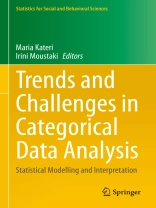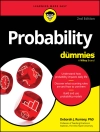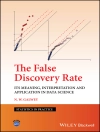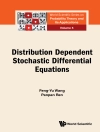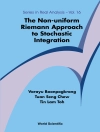This book provides a selection of modern and sophisticated methodologies for the analysis of large and complex univariate and multivariate categorical data. It gives an overview of a substantive and broad collection of topics in the analysis of categorical data, including association, marginal and graphical models, time series and fixed effects models, as well as modern methods of estimation such as regularization, Bayesian estimation and bias reduction methods, along with new simple measures for model interpretability. Methodological innovations and developments are illustrated and explained through real-world applications, together with useful R packages, allowing readers to replicate most of the analyses using the provided code. The applications span a variety of disciplines, including education, psychology, health, economics, and social sciences.
Inhaltsverzeichnis
Preface.- Chapter 1. Carolyn J. Anderson, Maria Kateri and Irini Moustaki: Log-Linear and Log-Multiplicative Association Models for Categorical Data.- Chapter 2. Peter W. F. Smith: Graphical Models for Categorical Data.- Chapter 3. Tam´as Rudas and Wicher Bergsma: Marginal Models: an Overview.- Chapter 4. Jonathan J Forster and Mark E Grigsby: Bayesian Inference for Multivariate Categorical Data.- Chapter 5. Alan Agresti, Claudia Tarantola and Roberta Varriale: Simple Ways to Interpret Effects in Modeling Binary Data.- Chapter 6. Ioannis Kosmidis: Mean and median bias reduction: A concise review and application to adjacent-categories logit models.- Chapter 7. Jan Gertheiss and Gerhard Tutz: Regularization and Predictor Selection for Ordinal and Categorical Data.- Chapter 8. Mirko Armillotta, Alessandra Luati and Monia Lupparelli: An overview of ARMA-like models for count and binary data.- Chapter 9. Francesco Valentini, Claudia Pigini, and Francesco Bartolucci: Advances in maximum likelihood estimation of fixed-effects binary panel data models.
Über den Autor
Maria Kateri is a professor of Statistics and Stochastic Modelling at the RWTH Aachen University. Her expertise is mainly in the areas of categorical data analysis and reliability. She has contributed in the analysis for contingency tables and modelling of ordinal data, employing tools of statistical information theory, algebraic statistics and Bayesian approaches. Moreover, she works on accelerated life testing under censoring, being also involved in Engineering Applications.
Irini Moustaki is a professor of Statistics at the London School of Economics and Political Science. Her research interests are in the areas of latent variable models and structural equation models. Her methodological work includes treatment of missing data, longitudinal data, detection of outliers, goodness-of-fit tests and advanced estimation methods. She has made methodological and applied contributions in the areas of comparative cross-national studies and epidemiological studies on rare diseases.
